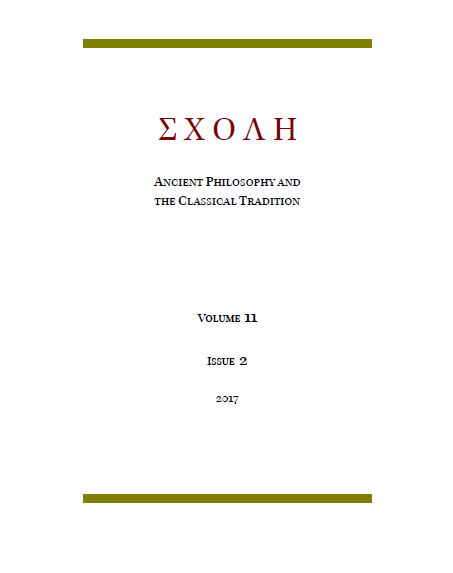ARIST. NICOM. ETHIC. III 4, 1111B4–7, 1113B22 КАК ИСТОЧНИК КОНЦЕПТУАЛЬНОГО АППАРАТА В УЧЕНИИ МАКСИМА ИСПОВЕДНИКА О ВОЛЕНИИ И ВОЛЕВОМ АКТЕ
ARIST. NICOM. ETHIC. III 4, 1111B4–7, 1113B22 AS THE SOURCE OF THE CONCEPTUAL APPARATUS IN MAXIMUS THE CONFESSOR’S TEACHING ABOUT WILL AND VOLITIONAL ACT
Author(s): Valery V. PetroffSubject(s): Ethics / Practical Philosophy, Ancient Philosphy, 6th to 12th Centuries
Published by: Новосибирский государственный университет
Keywords: Aristotle; Nicomachean Ethics; Maximus the Confessor; natural will; selective will; choice;
Summary/Abstract: The article treats the teaching on the will and volitional act developed by a Byzantine philosopher and theologian Maximus the Confessor (c. 580-662). The concepts discussed by Maximus in relation to the stages and constituent parts of volitional act are analyzed. In the article, I show that the core of the conceptual apparatus on which Maximus, involved in the Christological polemics with the Monothelites, builds his doctrine of will, is made of the terms discussed by Aristotle in his “Nicomachean Ethics” III, 4, 1111b 4 - 7, 1113b 22, and reconstruct Maximus’ teaching concerning the natural and selective will of man.
Journal: ΣΧΟΛΗ. Философское антиковедение и классическая традиция
- Issue Year: XI/2017
- Issue No: 2
- Page Range: 393-406
- Page Count: 14
- Language: Russian

